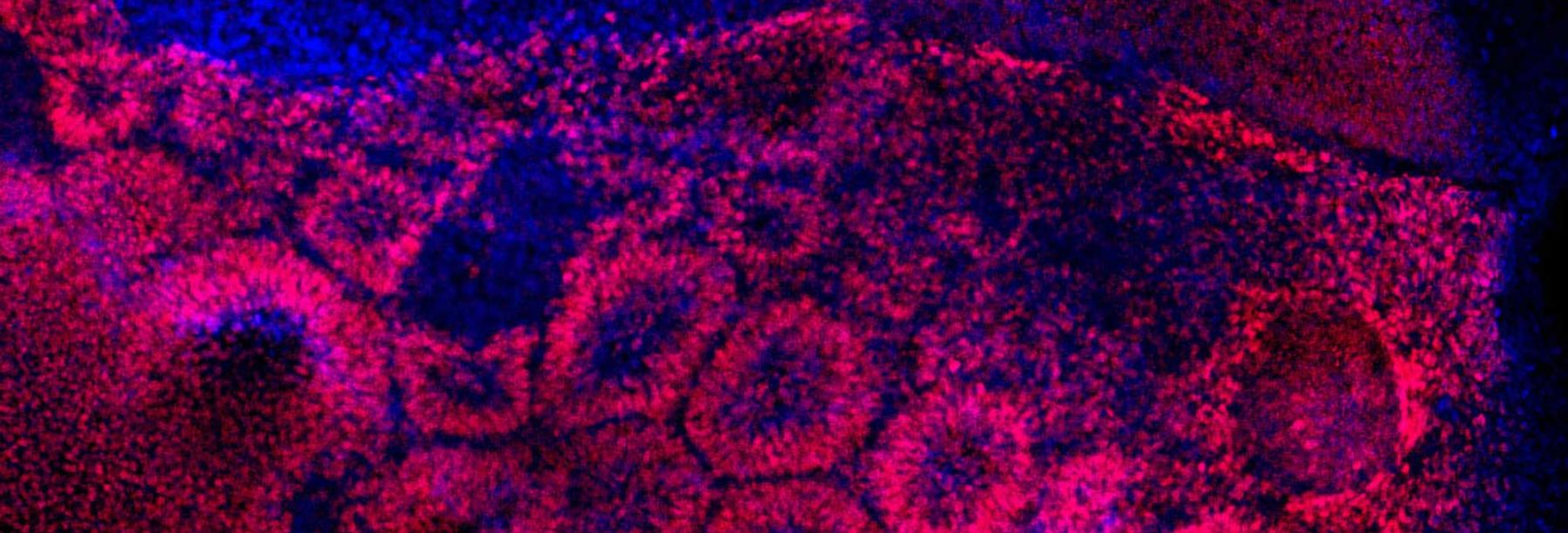Modern cell and developmental biology brings together a diverse group of disciplines and technologies linked by the common goals of understanding the nature and behavior of cells and of how these cells work together to assemble an organism. This is a relatively new discipline that has emerged from studies in physiology and biochemistry. Some cell and developmental biologists concentrate on the role that one particular molecule plays within cells. Others study the way in which molecules assemble into structures such as chromosomes or nuclei. Still others examine how groups of cells interact to form systems of greater complexity, such as occurs with the progression of a fertilized egg through developmental stages to become an adult organism. The range of instruments and methods employed by cell and developmental biologists is equally diverse and includes recombinant DNA technology, biochemistry, cell culture, genetics, and light and electron microscopy.
The Major
Cell biology and developmental biology are sub-disciplines within the larger, more general area of biology. These sub-disciplines demand a genuine interest in the "hard sciences", including a solid foundation in biology, chemistry, mathematics and physics.
The major exposes students to sophisticated techniques and equipment that emphasize the experimental nature of cell and developmental biology through "hands-on" experience and laboratory work to augment the classroom experience. Independent research is encouraged and undergraduates are invited to participate in ongoing research seminars. UCSB's Special Programs Office sponsors a variety of fellowships and awards that fund undergraduate research projects.
Students planning to major in cell and developmental biology enter as a biological sciences premajor and take a common core curriculum consisting of introductory biology, general chemistry, physics, organic chemistry and calculus. Students should complete this preparatory coursework in their freshman and sophomore years. Following successful completion of seven of these courses, students may advance from premajor to full major status. Upper-division coursework includes genetics, cell biology, developmental biology (with choices from among animal, plant and neuronal development), biochemistry and additional electives. Students should review the full requirement sheet for the major they intend to declare and plan their schedules accordingly.
Careers in Cell and Developmental Biology
The cell and developmental biology major reflects a growing need for scientists who are able to bridge sub-disciplines, bringing to bear modern biochemical and molecular biology techniques on classic problems in cell and developmental biology. As such, successful completion of UCSB's B.S. degree in cell and developmental biology at UCSB provides students with many career options.
The major is excellent preparation for graduate training (Master's and Ph.D. degree programs) in a wide range of molecular, cellular and developmental biology disciplines. The course requirements for the major satisfy most graduate program requirements and students are well-prepared in both coursework, understanding and practical experience.
The laboratory work combined with the practical approach in the classroom are advantages to students interested in research careers, for example in the pharmaceutical and biotechnology sectors of the marketplace. The BS degree in cell and developmental biology is excellent preparation for a career combining science and law such as forensics.
The cell and developmental biology major also is excellent preparation for medical, dental, pharmacy or veterinary school. These professional programs demand a basic understanding in molecular, cellular and developmental biology. Students interested in the health sciences and related professions can take advantage of the University's excellent health science advisory system located in Cheadle Hall. They can seek advice and support from the beginning of their studies in biology to their entrance into health sciences graduate programs and professional schools.
Students interested in teaching biological sciences and/or conducting research at the university level should plan to complete the Ph.D. degree. Students interested in teaching at the community college level should pursue graduate work at least through the Master's degree. Secondary school teaching requires the California single subject teaching credential; students considering this last option should discuss their plans with the credential advisor in UCSB's Graduate School of Education early in their academic careers.
High School Preparation
Recommended as part of or in addition to the UC admission requirements:
- One year of biology
- One year of chemistry
- Mathematics through trigonometry
- One year of physics
Transfer Preparation
To make normal progress in the major, complete the following courses prior to transferring to UCSB:
- One year sequence of general chemistry with laboratory
- One year sequence of general biology with laboratory
- Two terms of calculus and either a third term of calculus or one term of statistics
- One year sequence of organic chemistry with laboratory
- One year sequence of physics with laboratory
Please see the UCSB General Catalog or your high school or community college counselor for more information on course preparation.
Additional Information
For further information please consult one of the biology undergraduate academic advisors.
FAQs
- How many upper division biology courses should I take per quarter?
-
We recommend taking two upper division biology courses per quarter (assuming 8.0 units per quarter) and, if possible, fulfilling area specific requirements first starting one's Junior/3rd year. This will give you the required 48.0 units required for most of our majors. For more detailed recommendations for the MCDB majors please go to: Resource Documents: Recommended Schedule - MCDB majors.
